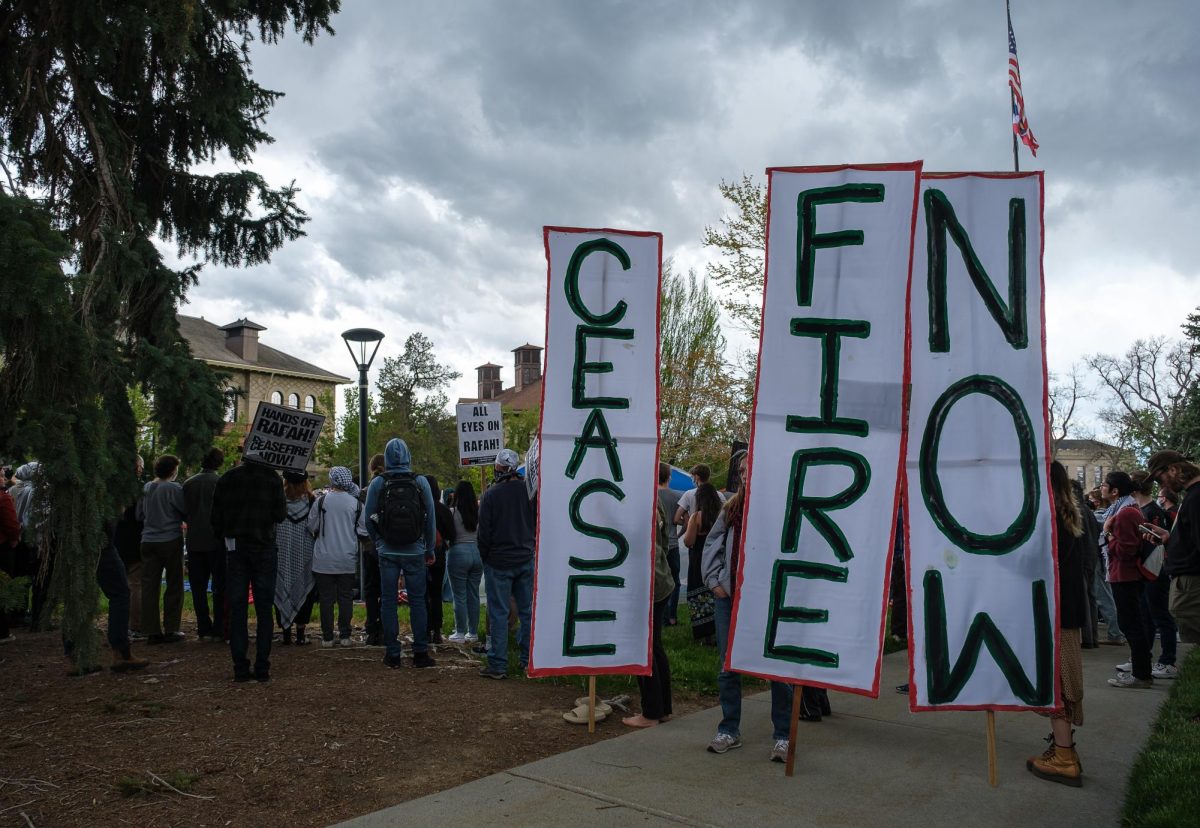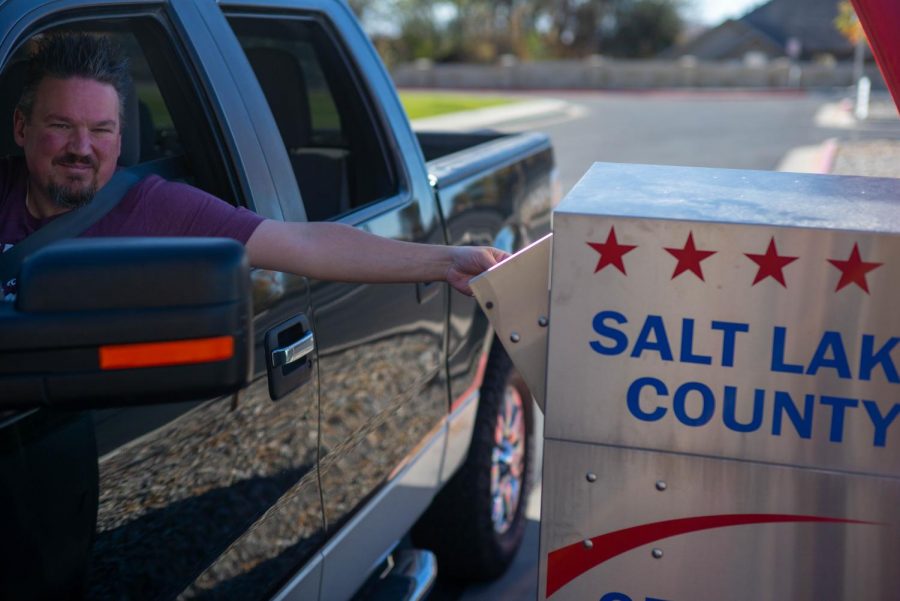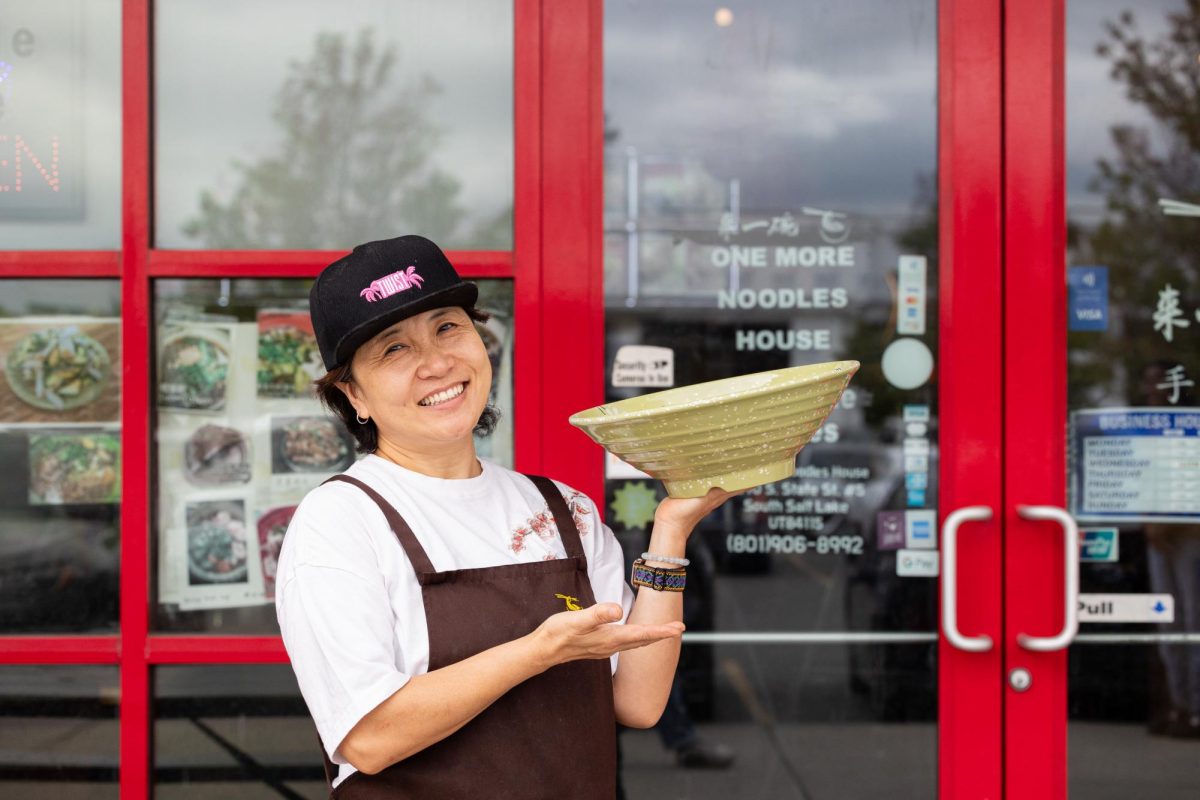State Street has been a center point of economic opportunities for many immigrants. In July 2022, the U.S. Census Bureau reported that 12.9% of Salt Lake County’s population consisted of “foreign-born persons” — meaning Salt Lake County has the highest population of immigrants in Utah. Many immigrants and undocumented workers attain a level of economic prosperity in Salt Lake that cannot be found elsewhere.
Custodian turned small business owner Yingzi Jiang owns and operates One More Noodle House. She said State Street has given her the opportunity to grow.
“I know through my service I can achieve self-fulfillment,” Jiang said.
However, even with policies helping accommodate foreign-born residents, Utah is still behind in offering support. Despite our diverse hub and opportunities, Utah must make changes to better protect the rising immigrant population and help it grow.
Inequalities Through Wages
On July 25, ABC4 Utah detailed how a Chinatown employer violated Utah labor laws. The investigation found that the employer owed over $500k in back wages, or unpaid financial compensation owed to employees. This incident sparked conversations about workers’ rights and employers’ duties.
One of the biggest concerns immigrants have when arriving in the United States is their job prospects, which influence their ability to provide for themselves. This is seen in the type of employment they attain. Due to restrictions on employment, many immigrants must take lower-paying jobs due to a lack of education and citizenship paperwork.
The lack of documentation paperwork usually means many immigrants take jobs that require hard labor with little pay. Immigrants tend to find employment in construction and hospitality, which are among the most abusive and dangerous industries. A 2021 study by the National Safety Council found that construction workers experienced the most workplace deaths, while a study by the Center for American Progress found that low-wage, women-dominated service industries experienced the highest sexual assault claims.
Undocumented and immigrant workers also tend to be the most susceptible to wage theft. The lack of citizenship and documentation leaves many of these workers helpless.
Undocumented and Immigrant Workers’ Contributions
According to the American Immigration Council, undocumented immigrants in Utah paid about $130 million in federal taxes and $81.4 million in state and local taxes in 2018. DACA recipients and DACA-eligible individuals paid close to $18 million in state and local taxes the same year.
Despite their contributions to Utah’s economy, many undocumented and immigrant individuals find themselves enduring workplace abuse, often because of the fear of losing their jobs or even deportation. This overwhelming fear makes contesting the unjust treatment difficult.
Holding State Street Accountable
The Utah Compact on Immigration was created to help with the broken immigration system throughout the state. The law passed in 2019 and emphasizes the importance of treating undocumented and immigrant Utah residents humanely. According to the Utah Compact’s website, the legislation is “based on Utah values” and urges leaders to “use these guiding principles as they address the complex challenges associated with a broken national immigration system.”
Despite this compact, Utah is still not doing enough to combat inequalities and injustice. After the Chinatown incident in July, there have been talks on ways that Utah and the country can help protect these populations.
What’s the Remedy?
Despite Utah’s efforts to support undocumented and immigrant workers, some feel like they’re not protected enough.
Fears of deportation and termination tend to be the biggest factors for why many undocumented and immigrant workers don’t fight their employers. We must hold these employers accountable with the laws put into place to prevent these circumstances. (reword?)
Mandatory biannual federal check-ups of many, if not all, businesses can be the first step towards preventing these matters. However, the Economic Policy Institute found the U.S. Department of Labor’s Wage and Hour Division has been failing its residents. The agency currently employs the same number of wage theft investigators as it did in 1948, but the U.S. workforce is six times larger today than it was then. If we focus our efforts on bolstering the number of wage theft investigators, we may be able to realistically perform these check-ins.
Ensuring that undocumented workers have awareness of their rights, both working and nonworking, is a good starting point. The Matheson Courthouse has partnered with the S.J. Quinney College of Law to provide pro-bono clinics for people experiencing violations of their labor rights.
Respect Your Workers
Utah must start respecting their workers — documented or not. This can only happen by fairly compensating them for their time and labor. We must start holding employers accountable by enforcing stricter laws for all businesses.
Utah can start by doing a better job at educating its immigrant and undocumented population with their working rights, so they are not taken advantage of.



















